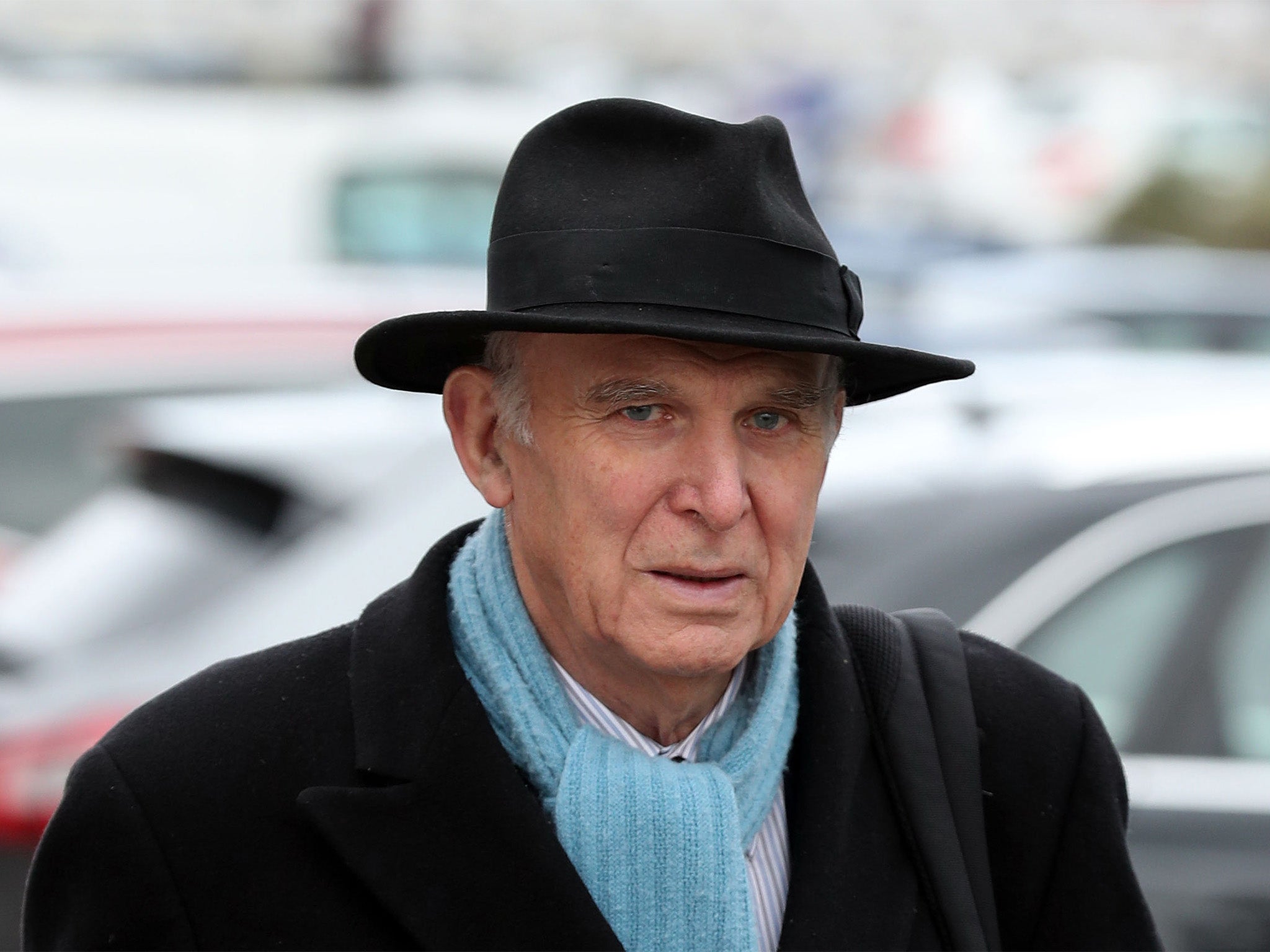Vince Cable's leadership stunts won't answer the big question: what are the Liberal Democrats for?
If this is the political version of Love Island, it’s surely the Lib Dems who got 'mugged off' most this summer


Your support helps us to tell the story
From reproductive rights to climate change to Big Tech, The Independent is on the ground when the story is developing. Whether it's investigating the financials of Elon Musk's pro-Trump PAC or producing our latest documentary, 'The A Word', which shines a light on the American women fighting for reproductive rights, we know how important it is to parse out the facts from the messaging.
At such a critical moment in US history, we need reporters on the ground. Your donation allows us to keep sending journalists to speak to both sides of the story.
The Independent is trusted by Americans across the entire political spectrum. And unlike many other quality news outlets, we choose not to lock Americans out of our reporting and analysis with paywalls. We believe quality journalism should be available to everyone, paid for by those who can afford it.
Your support makes all the difference.It’s the August Bank holiday week and Westminster is on recess so it must be time for a Liberal Democrat leadership debate. The leaking of this latest announcement – that leader Vince Cable is reportedly planning to stand down (a claim he has denied) and change party rules to make way for a successor who is not an MP – has the whiff of another backroom deal cooked up by senior figures.
The fact is that too few people continue to pull the strings in a party of over 100,000 members, two thirds of whom joined within the last three years. The Liberal Democrats is a very different party now from the one that shared power in coalition government, but the grandees don't seem to have noticed.
Cable took over the top job at a difficult time last year, and in less than ideal circumstances. The party underperformed in the 2017 general election, but since then Cable has scored some notable electoral successes, including gaining 75 seats at last year’s local elections (the most of any party) and slashing Labour’s majority in Lewisham East from 21,213 to 5,629 in June, against all expectations. On matters of policy Cable has taken positive steps, putting dynamic former teacher Layla Moran in charge of a revamp of our tarnished education policy and speaking up forcefully for responsible capitalism and the need to tame the "tech titans".
So the problem has not been what the Lib Dems have been saying on these issues, but the fact that nobody has been listening. Politics has become a giant echo chamber in the Brexit era and most normal voters have simply switched off.
But politics isn’t fair. Ultimately, it will be Cable’s failure to grasp the opportunities presented by the current political situation that will hasten his exit.
Firstly, there has been his failure to establish the Lib Dems as Britain’s foremost anti-Brexit movement. Some of the causes for this are structural – the party has very few MPs and no Lib Dem supporting newspapers – but some of them are tactical. Cable has been an enthusiastic contributor to national anti-Brexit campaigns, but these have tended to be cross-party and in some cases non-party ventures. That has the effect of watering down his Lib Dem message; I saw a tweet recently from someone who said they had "forgotten Vince Cable was Lib Dem Leader".
It should go without saying that if you plan to position yourself as the leader of the Stop Brexit campaign in Parliament you really can’t miss a vote on Brexit. But Cable did.
Then there is the question of how he has responded to the implosion of the Labour party and civil war within the Tories. If I had a pound for every person who told me this was an opportunity for the Lib Dems, that would be the party’s annual fundraising sorted. Cable and Chuka Umunna have appeared inseparable all year, but still no Labour MP has been persuaded to jump ship. If this is the political version of Love Island, it’s surely the Lib Dems who got mugged off most this summer.
But being liked isn’t enough in a winner takes all contest: the Liberal Democrats desperately need to get out of the dreaded "friend zone" if they are going to survive in British politics long term.
In recent days Cable has allowed stories to circulate which indicate he thinks the game’s up not just for him but for the party as we know it. An interesting strategy.
In terms of party reform, Cable has the right ideas. It’s a pathetic irony that Lib Dems (in government) have been more effective at promoting diversity in the country than in our own ranks. One of the things he has done as leader is to help change that by talking up all BAME shortlists. The party he leaves will be more representative in years to come thanks to the work he started. And on party leadership rules, there are many more Lib Dems outside Parliament than in, so why would you want to exclude them from any future talent pool? In 2018 traditional party membership is woefully outmoded and lowering the bar to engage and involve Lib Dem supporters makes sense.
However, neither of these two reforms address the basic question: what are the Liberal Democrats for?
Plus ça change, plus c’est la même chose. Roll on Conference season – and a chance of Lib Dems finding love.
Daisy Benson is a Liberal Democrat activist and a former prospective parliamentary candidate for the party. A version of this article first appeared on Medium
Join our commenting forum
Join thought-provoking conversations, follow other Independent readers and see their replies
Comments